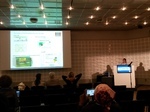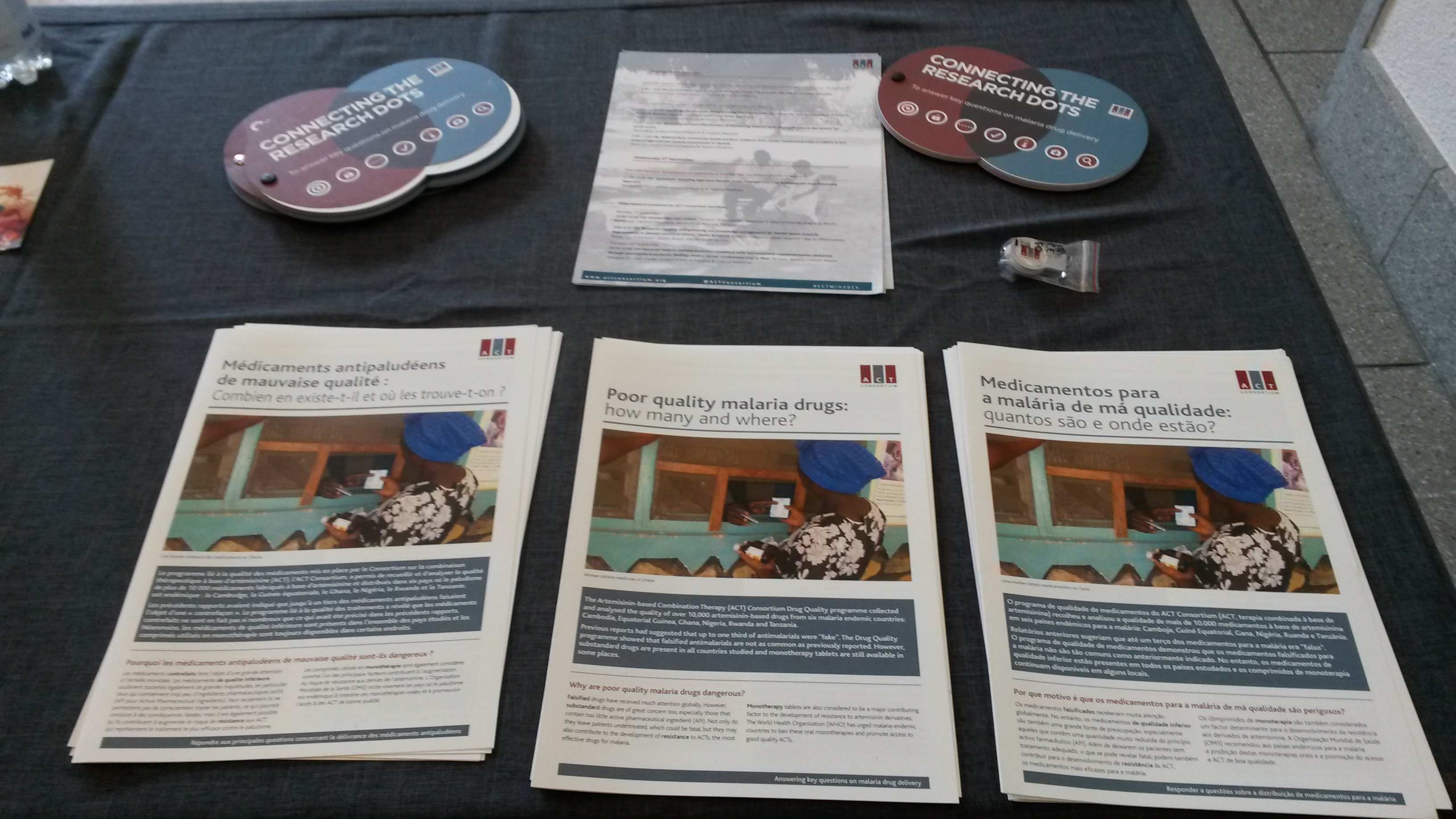Substandard and falsified medicines: Day 3 at ECTMIH
10 September 2015

The ACT Consortium drug quality programme shared findings on antimalarial sampling and analysis in a session dedicated to the surveillance of poor quality medicines.
On the third day of the European Congress on Tropical Medicine and International Health 2015, drug quality experts presented on various aspects related to the surveillance of substandard and falsified medicines.
Speakers represented the following institutions:
- World Health Organization
- Swiss Institute of Tropical Medicine and Public Health
- German Institute for Medical Mission
- London School of Hygiene & Tropical Medicine
Drug quality programme: ACT Consortium

You can download the drug quality evidence brief in English, French and Portuguese
Dr Harparkash Kaur, lead Principal Investigator of the ACT Consortium drug quality programme based at the London School of Hygiene & Tropical Medicine, presented research findings which showed that there are fewer falsified antimalarials than previously reports had suggested.
Good quality medicine assurance
Low and middle-income countries are particularly permeable to poor quality medicines, such as those in sub-Saharan Africa. According to some experts, in order to tacke this problem regulatory authorities should:
- update the list of registered medicines and improve the registration process
- enforce regulations on pharmacy practice
- upgrade the regulation about packaging, labelling and leaflet of pharmaceuticals
- intensify inspections of local manufacturers
- improve the alert system,
Speakers also suggested that funding agencies should develop procurement policies based on stringent quality control criteria, and support the upgrade and accreditation of local laboratories according to WHO standards.
Further information
- ECTMIH 2015: ACT Consortium joins major congress in Switzerland
- ECTMIH Day 1: Diagnostics in malaria treatment and control
- ECTMIH Day 2: Rapid diagnostic tests and research consortia
- Follow us on Twitter at #ECTMIH2015 and @ACTConsortium
- Share your ideas, questions and answers on our LinkedIn group
- Watch a video about the ACT Consortium drug quality programme

